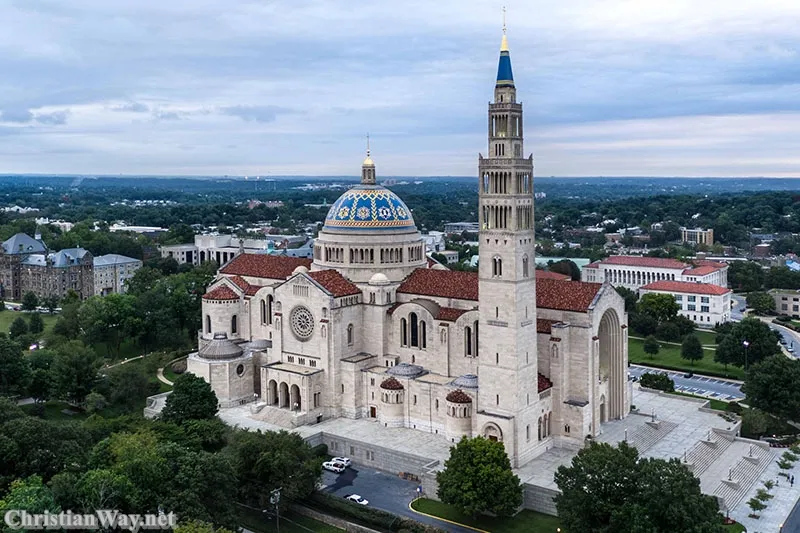Dear friends in Christ,
There are souls in every age who have carried the world before God in silence — hearts who spoke little, yet whose prayers thundered in heaven. These are the saints of prayer and contemplation, men and women who withdrew not from love, but into love; who found, in the stillness of the soul, the voice of the Eternal.
Their lives were not defined by noise or achievement, but by an interior fire — a mystical union with Christ that transformed everything they touched. The Church calls them contemplative saints, for they remind us that prayer is not escape but encounter; not words alone, but the breath of love between God and His creature.

Let us journey together through the lives of ten saints of prayer, whose quiet intimacy with God continues to teach us the beauty and power of stillness before the Divine.
1. Saint Teresa of Ávila – The Mystic of the Interior Castle
Few figures illuminate the contemplative path as clearly as Saint Teresa of Ávila. A Carmelite reformer and Doctor of the Church, her writings — especially The Interior Castle — remain a masterpiece of mystical theology.
Teresa teaches that prayer is a gradual journey inward, through the “mansions” of the soul, until one reaches the center where God dwells. Her life was marked by ecstasies, visions, and profound suffering, yet all of it was rooted in her burning desire for God’s friendship.
She once said, “Prayer is nothing else than being on terms of friendship with God, frequently conversing in secret with Him who we know loves us.”
2. Saint John of the Cross – The Poet of the Dark Night
The spiritual companion of Teresa and one of the greatest mystic saints, Saint John of the Cross revealed the transforming power of divine love through suffering and detachment.
His writings, especially The Dark Night of the Soul, describe the purifying journey by which the soul is stripped of everything that is not God. In that darkness, faith burns like a hidden flame, guiding the heart toward union with the Beloved.
John’s poetry overflows with longing: “O night that guided me, O night more lovely than the dawn, O night that joined Beloved with lover, lover transformed in the Beloved.”
3. Saint Thérèse of Lisieux – The Little Flower of Simplicity
Though she lived only twenty-four years, Saint Thérèse of Lisieux reached the heights of contemplation through her little way — doing small things with great love.
Her childlike trust, expressed in Story of a Soul, reveals a path of prayer through simplicity and surrender. Thérèse shows us that contemplation is not reserved for cloistered mystics; it can bloom in the smallest acts of daily life offered to God.
She prayed, “I choose all… I want to love You as You have never been loved before.” Her hidden life of prayer continues to inspire countless hearts to find holiness in ordinary love.
4. Saint Francis of Assisi – The Lover of Creation and Prayer
Though known for his love of poverty and the natural world, Saint Francis of Assisi was above all a man of deep prayer and contemplation.
Francis spent long nights in solitude, weeping before the Cross and whispering, “My God and my all.” His union with Christ became so complete that he bore the stigmata — the wounds of the Crucified — as a sign of divine intimacy.
Through his Canticle of the Creatures, Francis teaches that contemplation is not escape from the world, but seeing the face of God in all creation.
5. Saint Catherine of Siena – The Bride of Christ’s Wisdom
Saint Catherine of Siena, a Dominican tertiary and Doctor of the Church, reached extraordinary mystical union through prayer and fasting.
In her Dialogue, she describes God speaking to her heart as to a beloved daughter. Her contemplation led not to withdrawal, but to action — she counseled popes, reformed religious life, and brought peace among warring factions, all while remaining rooted in prayer.
Catherine’s union with God gave her a bold heart. She declared, “Be who God meant you to be, and you will set the world on fire.”
6. Saint Benedict of Nursia – Father of Western Monasticism
Saint Benedict, the patriarch of monks, gave the world a way of life rooted in ora et labora — prayer and work.
His Rule of St. Benedict remains one of the great guides to Christian contemplation, balancing solitude with community, and prayer with daily labor. For Benedict, silence was not emptiness, but the space in which God speaks.
The Benedictine tradition reminds us that contemplation grows not from escape, but from rhythm — the steady heartbeat of prayer in every hour.
7. Saint Hildegard of Bingen – The Visionary of Divine Harmony
A woman of immense intellect and spiritual depth, Saint Hildegard of Bingen united prayer, music, theology, and science into a contemplative vision of creation.
Her mystical experiences, recorded in Scivias, opened windows into divine light and cosmic order. For Hildegard, prayer was the song of the soul joining the symphony of heaven.
She saw the world as filled with “viriditas” — the living greenness of God’s life. In her contemplative vision, creation itself became a vast prayer.
8. Saint Elizabeth of the Trinity – The Soul of Silence
A Carmelite nun like Thérèse, Saint Elizabeth of the Trinity lived a short but radiant life of interior prayer.
Her letters and writings reveal her as a saint of profound spiritual stillness — one who longed to be, as she wrote, “a praise of glory” to the Holy Trinity dwelling within her soul.
Elizabeth teaches us that contemplation is not a technique, but a relationship of presence — living each moment in silent adoration of the indwelling God.
9. Saint Anthony of the Desert – The First Monk
In the third century, Saint Anthony of Egypt retreated into the desert to live a life of solitude and prayer, becoming the father of Christian monasticism.
His struggle against temptation and his endurance in the silence of the desert inspired generations of monks to seek God in simplicity and purity of heart.
Anthony’s life proves that true contemplation is not escape from struggle, but a spiritual battle waged in silence, where the heart is tested and purified by love.
10. Saint Padre Pio – The Contemplative of the Cross
Saint Pio of Pietrelcina, known as Padre Pio, was a Capuchin friar whose life of intense prayer and mystical union drew millions to Christ.
Marked by the stigmata for fifty years, he spent countless hours in confession and in the presence of the Eucharist. His words were few, but his prayer was powerful — healing souls and bodies alike.
Padre Pio’s contemplation was rooted in the suffering love of Christ. He said, “In the silence of the heart, God speaks — and we must listen.”
The Mystery of Contemplative Prayer
In the lives of these mystic saints, we see a common thread — the movement from activity to stillness, from self to surrender.
Contemplation is not a privilege of the few; it is a call extended to every Christian soul. It begins in the heart that pauses amid the noise of life and whispers, “Speak, Lord, your servant is listening.”
The saints of prayer did not flee the world; they carried it in their hearts into the presence of God. Their silence was not emptiness, but fullness — a love so great it could only be expressed in stillness.
Living the Contemplative Spirit Today
In our modern age — filled with distraction and noise — the example of these contemplative saints is more necessary than ever.
To pray like them does not require a monastery; it requires a heart that listens. We can begin by setting aside moments of quiet each day, by reading Scripture slowly, or by simply sitting before God in trust.
When prayer becomes the breath of our soul, our lives are transformed — and like the saints, we become living tabernacles of divine presence in the world.
Reflect and Pray
Beloved reader, God waits for you not in the clouds, but in the quiet of your own heart. The contemplative life is not far away; it begins wherever love begins — in silence, humility, and surrender.
May these saints of prayer and contemplation lead you to rediscover the stillness that heals the soul and opens it to eternal communion with God.
“Be still, and know that I am God.” — Psalm 46:10
May the peace of Christ fill your heart with quiet joy, and may your every breath become a prayer of love.
— Fr. John Matthew, for Christian Way











